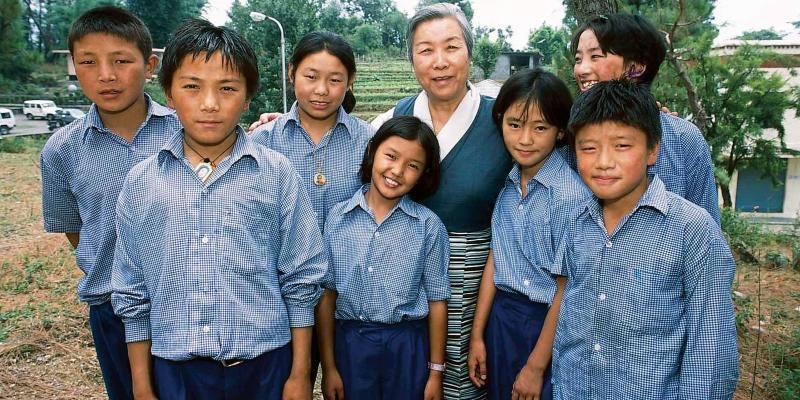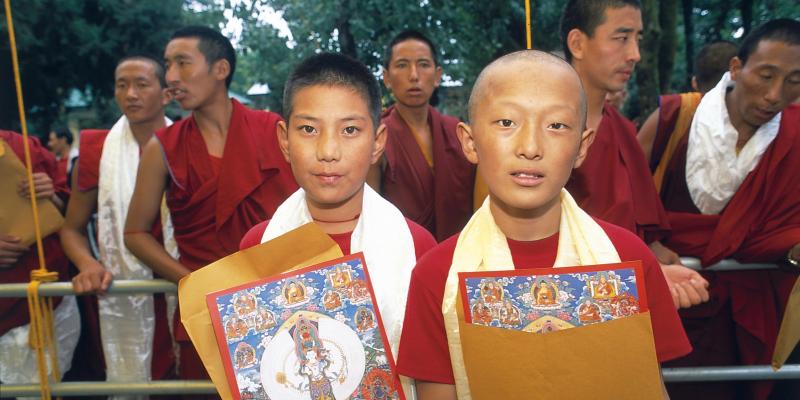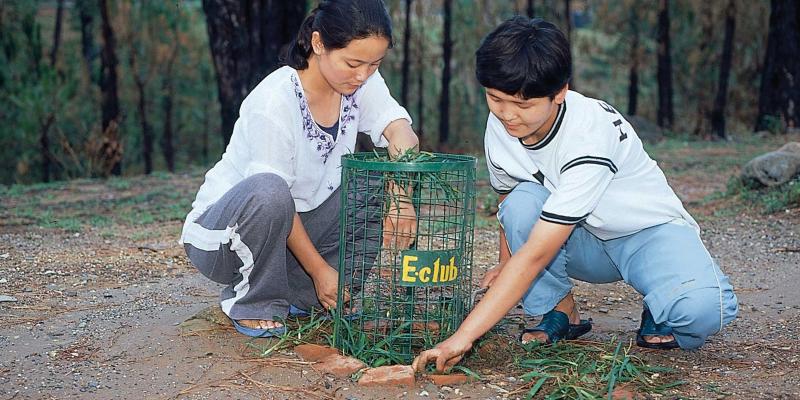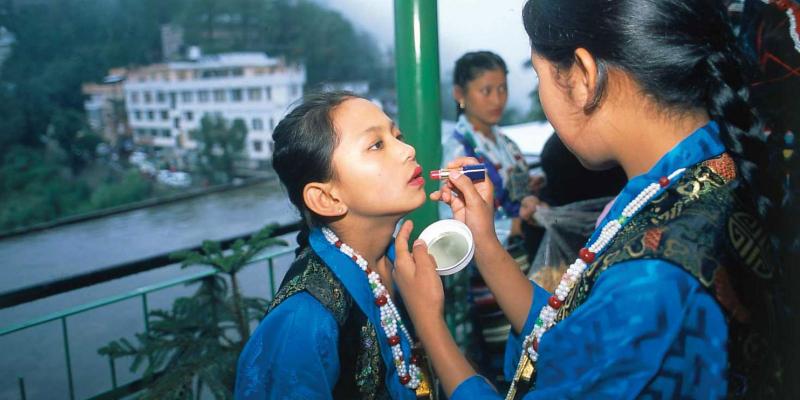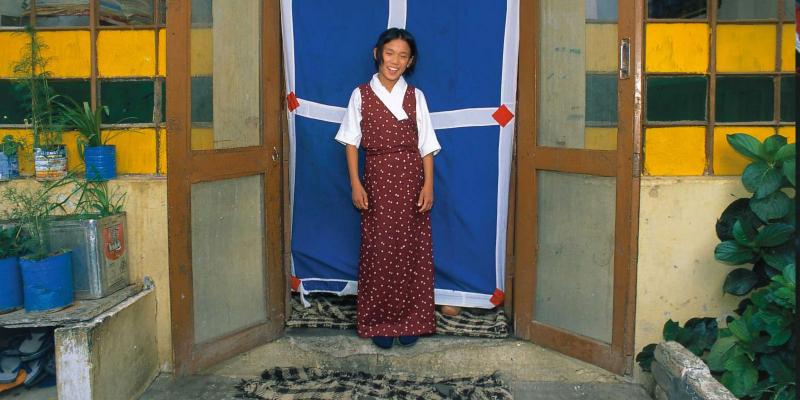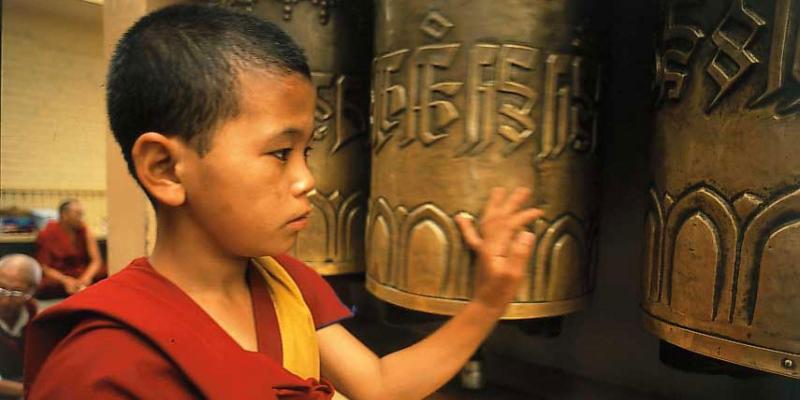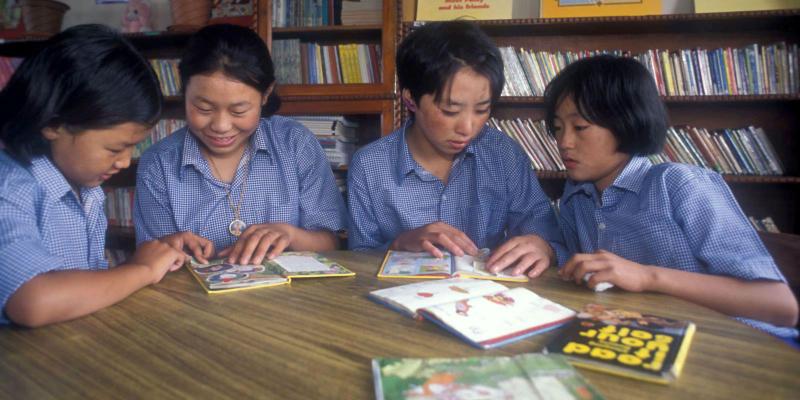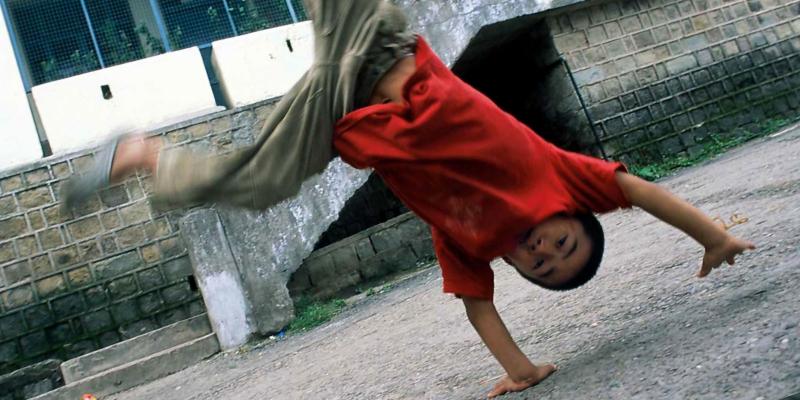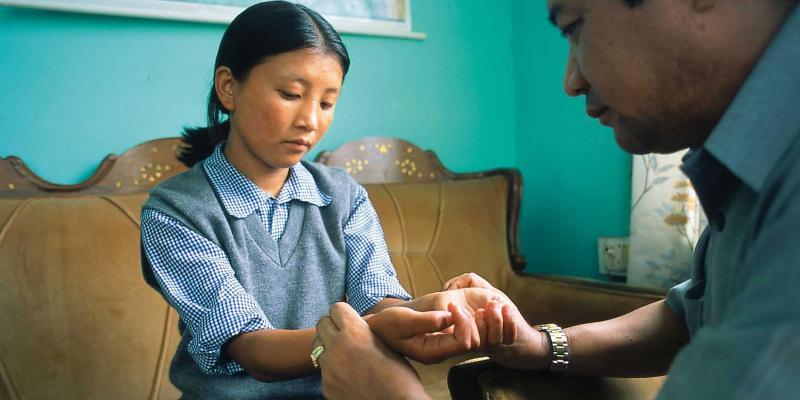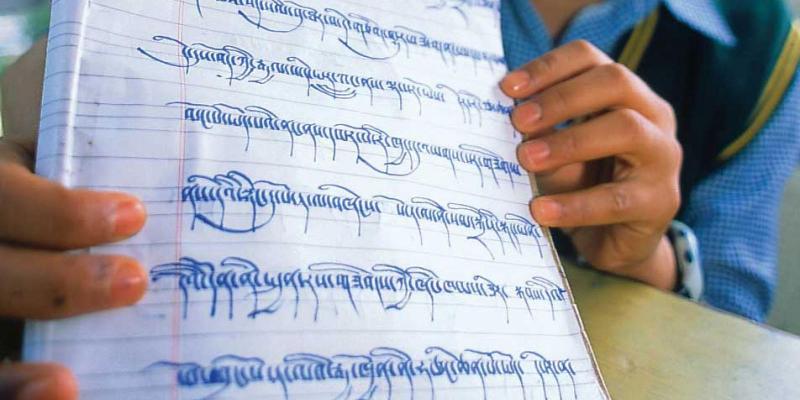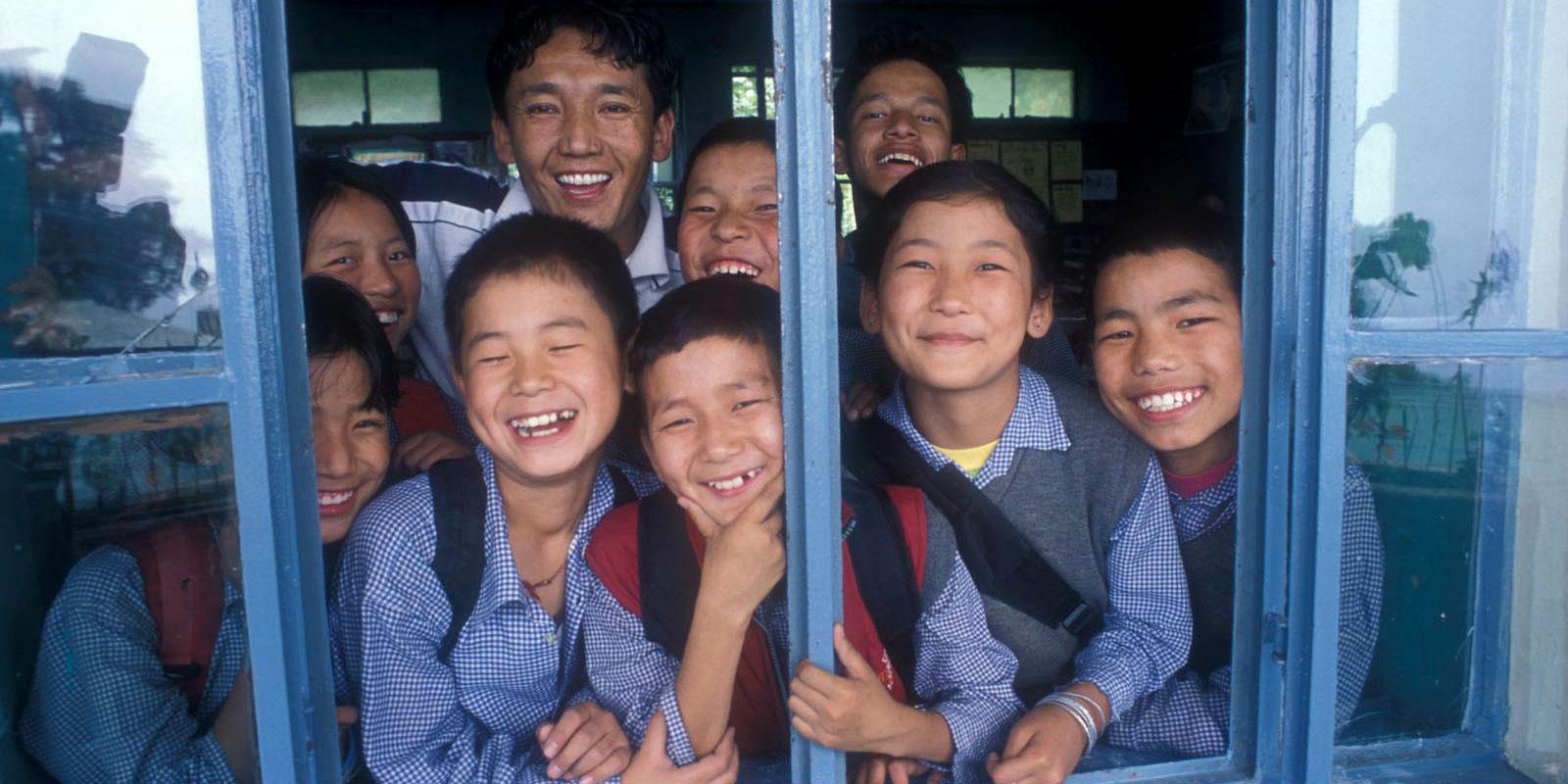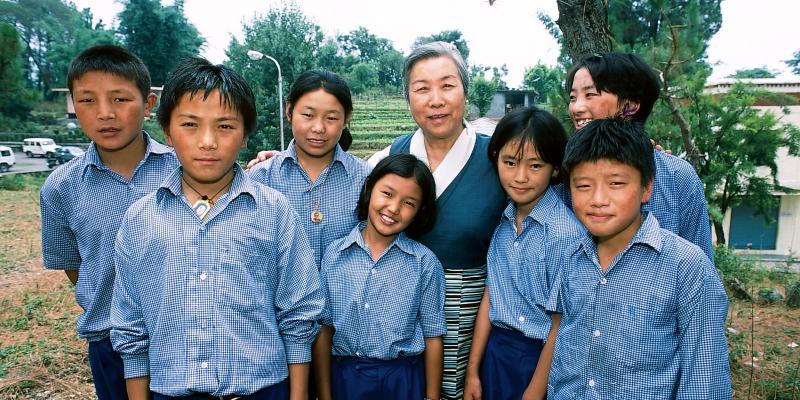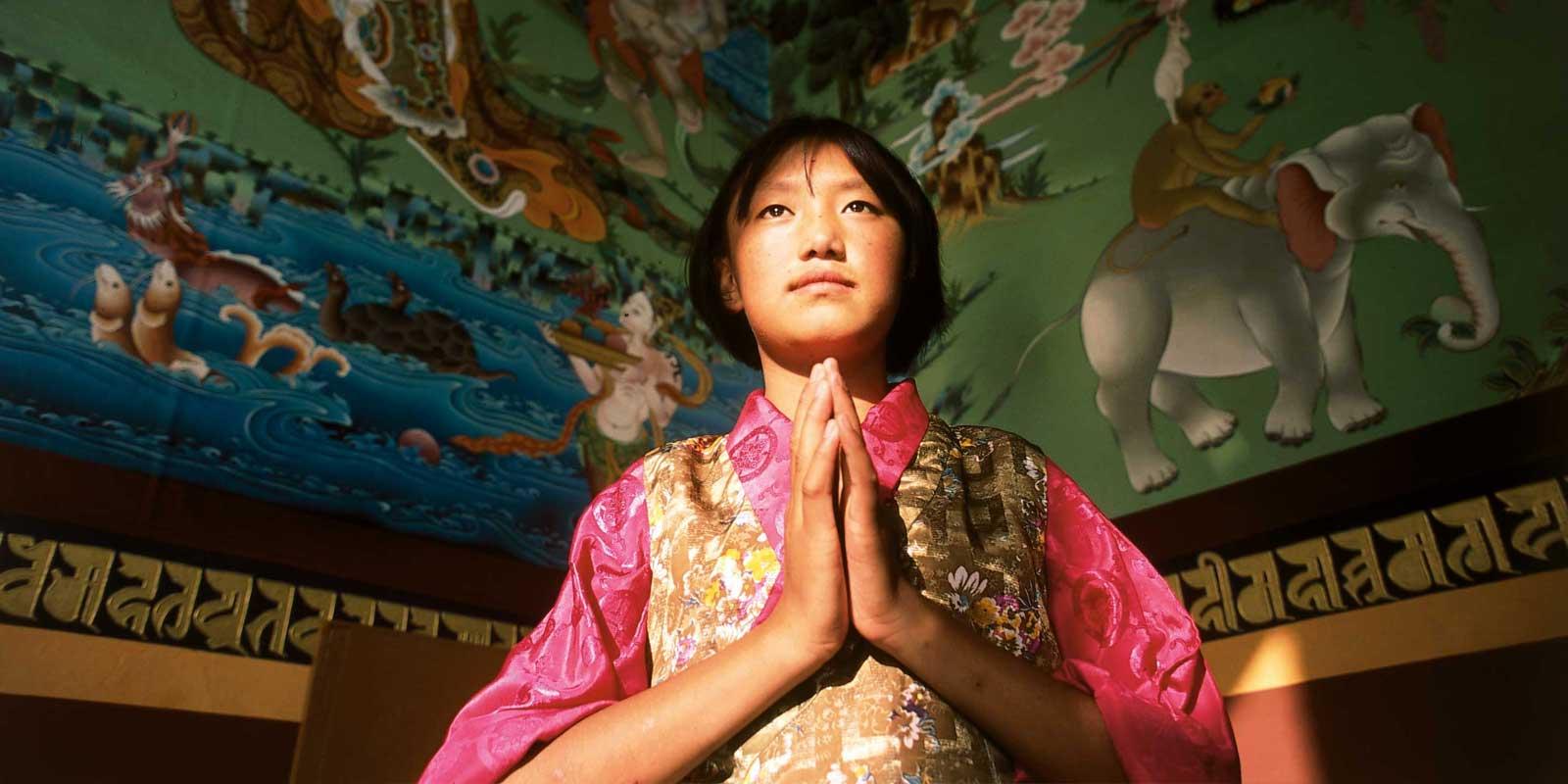
When Tashi was little, her father died. When her mother became very ill, the family couldn’t afford to buy her medicine. Her mother died before Tashi turned eight, and Tashi and her brothers and sisters became orphans.
Tibetan Buddhists believe that it takes 49 days before the soul leaves a dead body. During that time, Tashi and her brothers and sisters can’t brush their hair, wash their faces, or dance or sing. They burn all the photos of their mum and give her clothes to the poor. One day Tashi’s big sister Tsering says they must move to Lhasa, Tibet’s biggest city. “We can’t survive in the village,” says Tsering, who has just turned 12. “We must work to survive.”
photo-girl-potala-palace-lhasa-tibet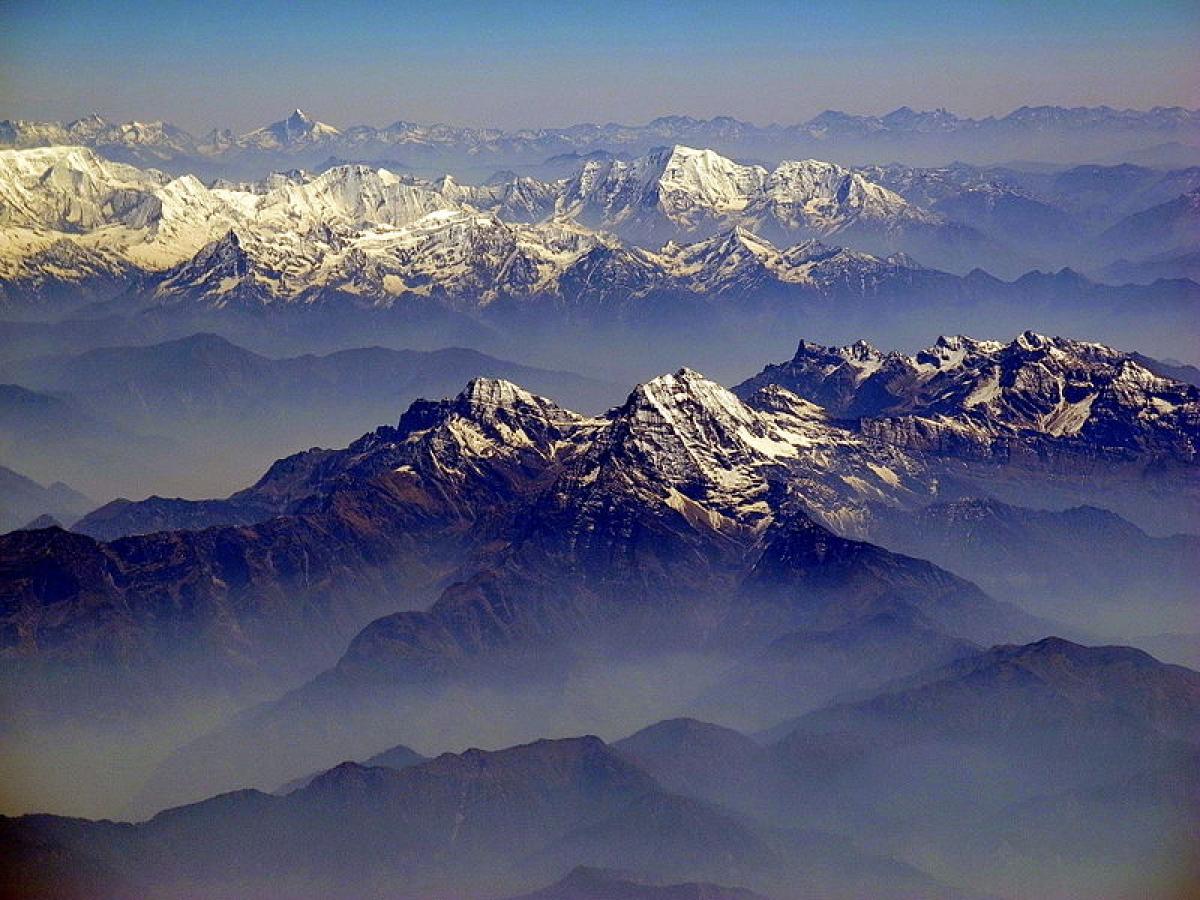
A hard life in Lhasa
In Lhasa, Tsering quickly finds work at a factory, but it is harder for Tashi. She is so little, just 8 years old. One day she sees a sign in a restaurant window. ”Help wanted”. “The job is yours if you can manage,” says the owner, a Chinese man. He shows her how to scrub and rinse plates, cutlery and glasses in a huge basin. She fetches the water from a big barrel in the yard. It is winter in Lhasa and very cold.Tashi begins at five in the morning and works to eleven at night. After a day with her hands in the ice-cold washing-up water, her fingers are numb. Suddenly a small bowl slips from her fingers and smashes on the stone floor. The restaurant owner’s wife runs up.
“Clumsy girl!” she says and shakes Tashi. But she is kinder than her husband. “Just don’t do it again,” she says and sweeps the broken pieces away so that her husband won’t see.
Tashi has to clear the tables herself. Sometimes she sees children eating with their parents. Then she becomes angry and sad. “Why was I born into a poor family?” she asks herself. “Why can’t I go to school and go to the restaurant with my mum and dad?” Before the sisters fall asleep at night they lie in the darkness and talk about the future. Tashi wants to quit work and go to school. “Just wait a little longer,” says Tsering. “If we work hard we can save money and send you to India.”
Tsering says there are Tibetan schools in India that are free for refugee children. They get food and a home and can live in freedom. But to be able to escape they must pay a guide to find the way over the Himalayan mountains. They don’t have enough money yet.
Time to escape
One day the sisters get a tip that a group of refugees are about to go to India. The next day, they leave at night. They are crammed into a truck for many hours with the rest of the group. Halfway to the Nepalese border the guide suddenly says that he wants more money. The sisters succeed in contacting a relative who sends money with his friend, a kind and brave Chinese man.The last stretch they walk over the mountains for nearly a week. They walk at night to not be discovered by the Chinese military patrolling the area. Tashi is really scared as she balances along narrow cliff paths along deep ravines. Early one morning they come to a wild river. Everybody ties their ropes, tops and scarves together into one long rope and the strongest man crosses the river first with one end of the rope. He uses a long wooden pole and jumps like a pole vaulter over the river. Then they all cross, one after another. Tashi is soaked, exhausted and shaking from cold.

When the food and water run out, they walk for two days without eating or drinking. The sisters throw nearly all their belongings away as they are too heavy to carry. At night, Tashi hears a stream but can’t fi nd it in the dark. In the end she takes ice from the ground and eats it. It is full of mud and grass, but Tashi is too hungry and thirsty to care. Suddenly she falls straight down in the darkness. She grabs onto some roots on the mountain side and calls for Tsering, who manages to help her up. A few minutes later it is Tsering’s turn. The sister sinks to her waist in a hole filled with sludge and has to be pulled out by two adults.
Hidden
When the group gets to the border with Nepal, the sisters have to hide for a few days at the home of the guide’s old mother. Finally a woman comes who helps the children dress like sherpa girls from Nepal. She rubs Tashi’s cheeks with black coal dust to hide her red cheeks. “The police know that Tibetans have blazing red cheeks,” she says.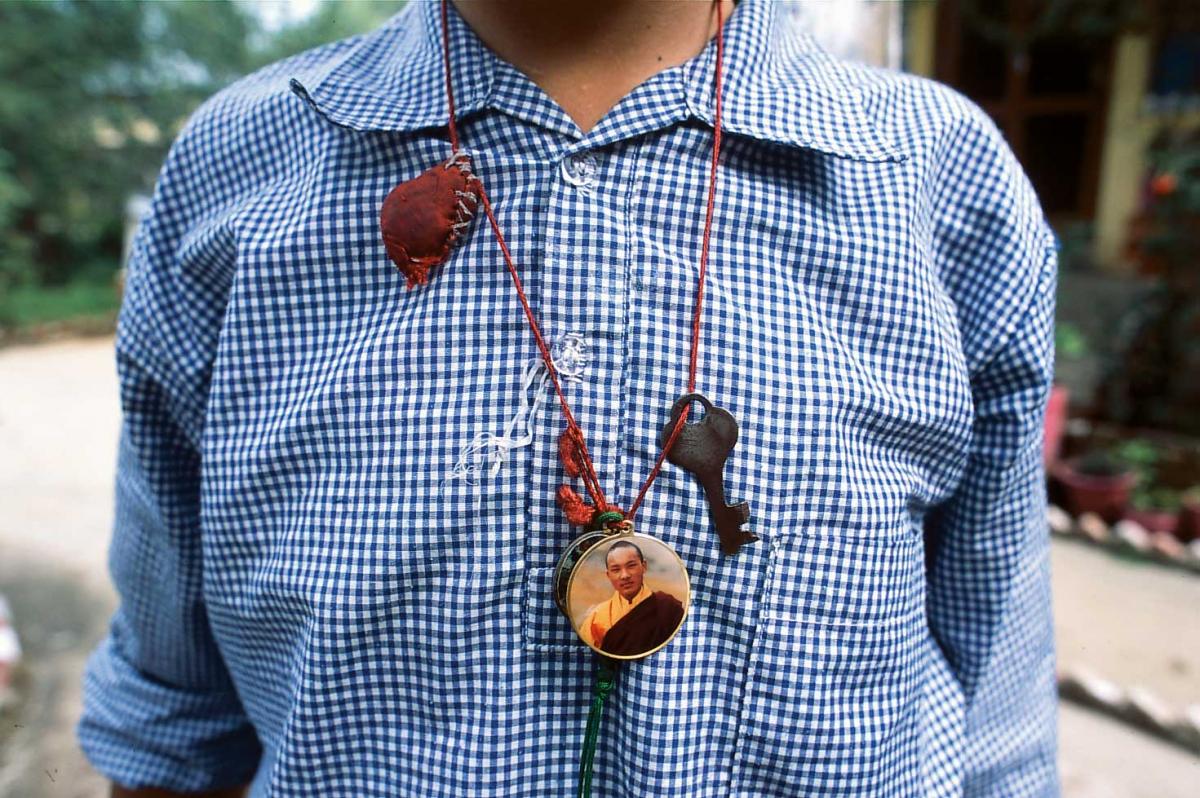
The girls wrap their scarves around their heads and are told to look at the ground when they come to the border. Tashi is so scared that she shakes as they walk past the armed border guards. She lets her hair fall onto her face and waits for someone to shout: “Seize the Tibetans!” But nothing happens. A bit beyond the border control a truck is waiting to drive them to Kathmandu, Nepal’s capital and the refugee §reception centre there. They are safe at last.
Tashi gets a new family
Now, Tashi and her sister live in the Tibetan children’s village in Bir in northern India. Nearly all the children and young people who live here were born in Tibet. And nearly all the teachers have grown up in the Tibetan children’s villages. Many of the children and teachers are orphans just like Tashi.
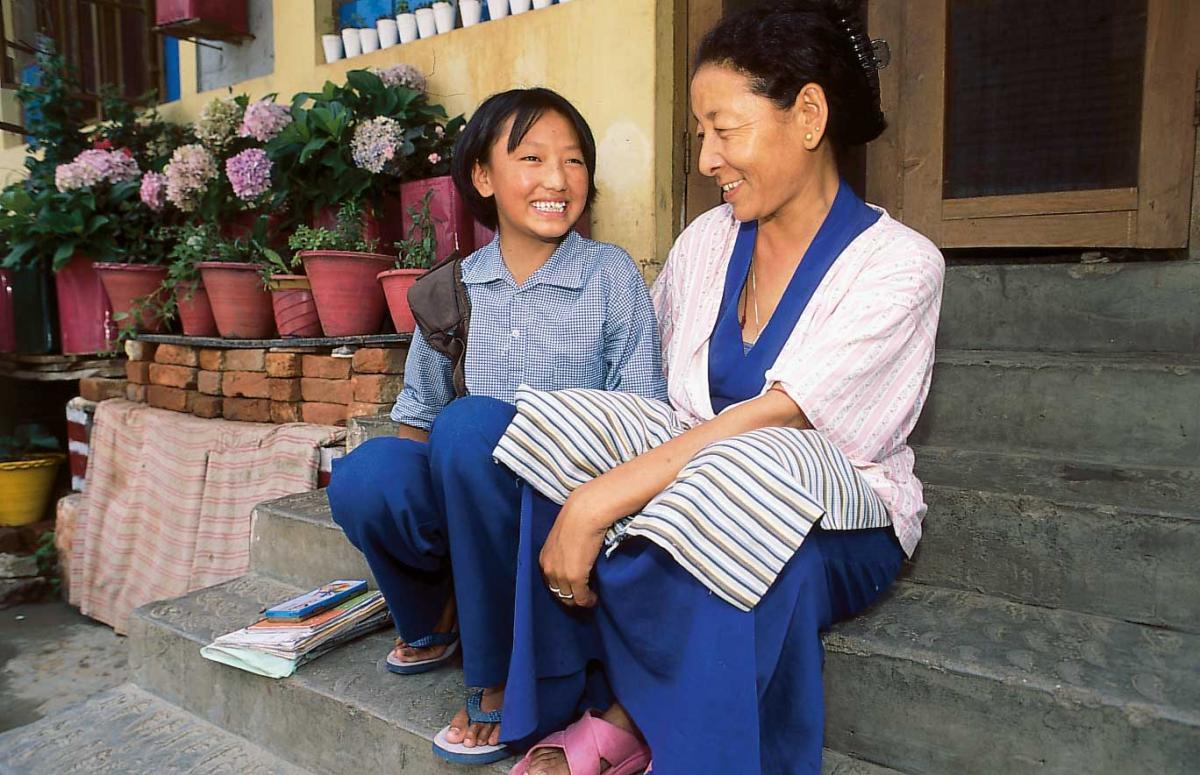
Tsering goes to upper secondary school and lives in a dormitory with other young people. Tashi lives in a family home. Suddenly she has a mum and nearly 40 brothers and sisters. “I don’t feel alone and orphaned anymore. The children in the home are like my brothers and sisters and I love my home mother. She is kind and cares for me like her own daughter. It feels like having a real family. The only thing that makes me sad is thinking that my brother still lives alone in Tibet.”
Tashi, 12
Misses: My brother.Loves: My sister and my home mother.
Likes: Going to school.
Dreams of: being a teacher.
Admires: Jetsun Pema.
Becomes angry: When it is hard to learn at school.
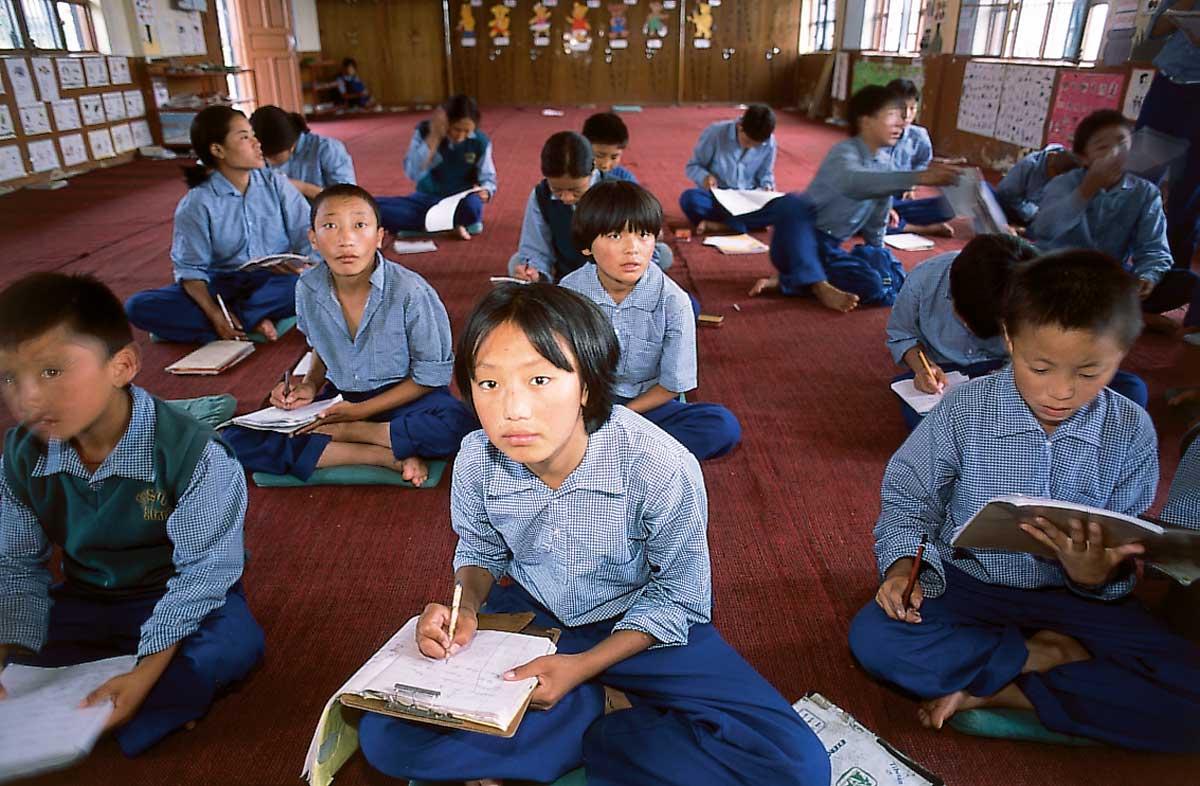
Related stories
Långgatan 13, 647 30, Mariefred, Sweden
Phone: +46-159-129 00 • info@worldschildrensprize.org
© 2020 World’s Children’s Prize Foundation. All rights reserved. WORLD'S CHILDREN'S PRIZE®, the Foundation's logo, WORLD'S CHILDREN'S PRIZE FOR THE RIGHTS OF THE CHILD®, WORLD'S CHILDREN'S PARLIAMENT®, WORLD'S CHILDREN'S OMBUDSMAN®, WORLD'S CHILDREN'S PRESS CONFERENCE® and YOU ME EQUAL RIGHTS are service marks of the Foundation.



